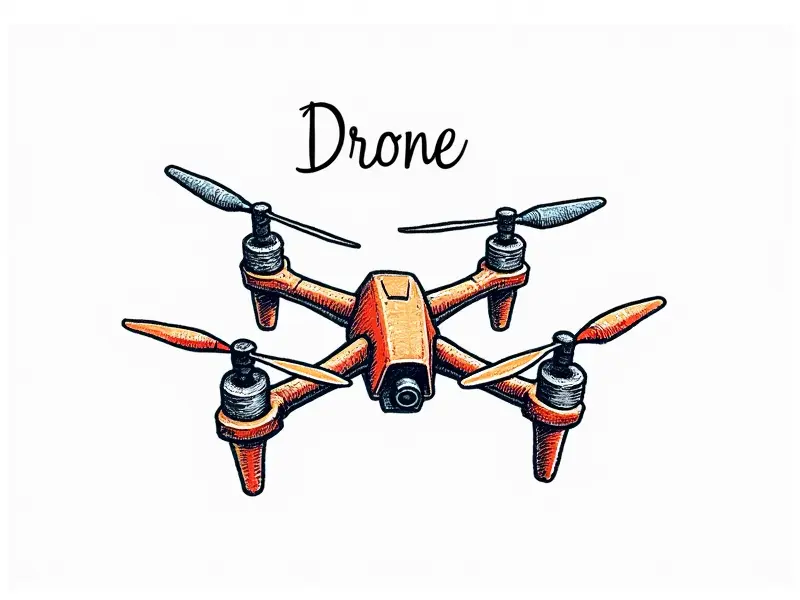What battery do RC planes use?

Best Batteries for RC Planes Explained
When it comes to remote control (RC) planes, the choice of battery can significantly impact performance and flight time. Whether you're a seasoned pilot or just starting out, selecting the right battery is crucial. This article delves into the best batteries for RC planes, including LiPo and NiMH options, and provides essential tips for maximizing your flying experience.
Top LiPo Batteries for RC Aircraft
Lithium Polymer (LiPo) batteries are a popular choice among RC enthusiasts due to their high energy density and lightweight construction. Here are some top LiPo battery models suitable for various types of RC planes:
- Turnigy Tattu 3S 1800mAh: Ideal for micro and small-scale aircraft, offering a balance between power and weight.
- Hobbywing 45C 2200mAh: Suitable for high-performance models requiring rapid discharge rates.
- Turnigy NanoTech 3S 1600mAh: A versatile option with excellent capacity and durability, suitable for both beginners and advanced pilots.
Maximize Flight Time with These Batteries
To extend your flight time, consider the following battery options:
- Batteries with higher mAh ratings: Higher capacity batteries provide more energy for longer flights. For instance, a 3S 2600mAh LiPo can offer significantly more runtime than a 1800mAh model.
- Multiple battery packs: Carrying spare batteries allows you to switch out during flight breaks, ensuring continuous flying time without interruptions.
- Batteries with balanced discharge rates: Opt for batteries that maintain a consistent voltage throughout the charge cycle, preventing sudden drops in performance.
Essential Battery Tips for RC Pilots
Maintaining your battery is crucial to ensure optimal performance and longevity. Here are some essential tips:
- Store batteries properly: Keep LiPo batteries at a 3.8V per cell charge level when not in use, and store them in a fire-safe container.
- Battery balancing: Use a balance charger to ensure each cell is charged evenly, preventing overcharging or undercharging issues.
- Monitor temperature: Avoid exposing batteries to extreme temperatures, as this can degrade performance and safety.
Quick Charge Options for RC Plane Batteries
Finding the right quick charge solution is essential for maximizing your flying time. Consider these options:
- Battery chargers with built-in balancing circuits: These ensure each cell receives an equal amount of charge, preventing overcharging.
- High-power charging stations: For rapid recharges, high-wattage chargers can significantly reduce downtime between flights.
- Smart chargers with temperature monitoring: These devices monitor battery temperatures during charging to prevent overheating and damage.
Budget-Friendly Batteries for RC Planes
If you're looking for cost-effective options, consider these budget-friendly batteries:
- Turnigy NanoTech 3S 1600mAh: A reliable and affordable option that offers good performance at a lower price point.
- Hobbywing 25C 2200mAh: Suitable for entry-level models, providing decent flight times without breaking the bank.
- Turnigy Tattu 3S 1800mAh: A compact and lightweight option that is both affordable and durable.
The Impact of Battery Choice on Performance
The type of battery you choose can greatly affect your RC plane's performance:
- Power-to-weight ratio: LiPo batteries offer a high power-to-weight ratio, making them ideal for fast and agile models.
- Voltage stability: Batteries with stable voltage output ensure consistent performance throughout the flight.
- Durability and lifespan: High-quality batteries last longer and withstand repeated charging cycles better than cheaper alternatives.
RC Plane Battery Comparison: Pros & Cons
Here's a comparison of LiPo and NiMH batteries:
- Lithium Polymer (LiPo):
- Pros: High energy density, lightweight, high discharge rates.
- Cons: Expensive, requires careful handling and storage, can be dangerous if mishandled.
- Nickel-Metal Hydride (NiMH):
- Pros: Safe to use, durable, no special charging requirements.
- Cons: Lower energy density compared to LiPo, heavier, shorter lifespan.
High-Performance Batteries for RC Models
For high-performance RC planes, consider these batteries:
- Hobbywing 45C 2200mAh: Designed for high-discharge rates and rapid acceleration.
- Gens Ace Tattu 3S 1800mAh: Lightweight and powerful, ideal for aerobatic models requiring quick response times.
- Turnigy NanoTech 25C 2600mAh: Offers a good balance between power and capacity, suitable for various high-performance applications.
LiPo vs NiMH: Which is Better for RC Planes?
The choice between LiPo and NiMH batteries depends on your specific needs:
- Lithium Polymer (LiPo): Best suited for high-performance models requiring rapid discharge rates and lightweight construction.
- Nickel-Metal Hydride (NiMH): Ideal for beginners or those seeking a safer, more durable option with no special charging requirements.
Quick Charge Solutions for RC Plane Enthusiasts
To minimize downtime and maximize flying time, consider these quick charge solutions:
- Battery chargers with high power output: These devices can recharge batteries in a fraction of the time compared to standard chargers.
- Smart charging stations with multiple ports: Charge multiple batteries simultaneously, reducing downtime between flights.
- Portable battery packs for on-the-go charging: Ideal for field use, these devices allow you to charge your batteries anywhere.
Conclusion
The right battery choice can significantly enhance the performance and enjoyment of your RC plane. Whether you opt for high-performance LiPo batteries or more durable NiMH options, proper care and maintenance are crucial to ensure longevity and safety. By considering factors such as power-to-weight ratio, voltage stability, and durability, you can select the best battery solution for your specific needs.
Happy flying!

